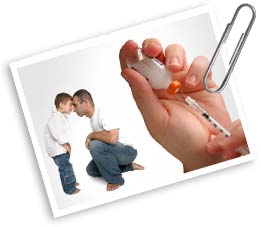 Most skeptics will be familiar with the unfortunately popular notion that there is a link between vaccinations and autism. For the most part we see it as a manufactured controversy that has had only negative effects, such as decreased confidence in science-based medicine, increased and misplaced confidence in alternative medicine, and the suffering and death of children who have not received vaccinations or have not been protected by herd immunity.
Most skeptics will be familiar with the unfortunately popular notion that there is a link between vaccinations and autism. For the most part we see it as a manufactured controversy that has had only negative effects, such as decreased confidence in science-based medicine, increased and misplaced confidence in alternative medicine, and the suffering and death of children who have not received vaccinations or have not been protected by herd immunity.
The treatment most commonly associated with this issue is the measles, mumps, and rubella vaccine (MMR). The furor began in 1998 after an unfortunate set of circumstances which led the prestigious British medical journal, The Lancet, to publish an article by Dr. Andrew Wakefield. I say ‘article’ rather than ‘research’ because the study may have had a (literally) fatal flaw – Dr. Wakefield was doing a study that was paid for by a group of parents of autistic children. These parents were looking for evidence that would aid them in a lawsuit against the makers of the MMR vaccine, which they were convinced had caused their children’s autism.
Immunization rates in Britain plummeted as a result of the article, with 25% of children not receiving the medication. A resurgence in the infection rates of these diseases followed, and in March 2006 a 13-year-old boy became the first person to die of measles in the UK in 14 years.
Since that time many of Wakefield’s collaborators have retracted their conclusions with a signed statement. The editor of The Lancet has said he never would have published the article if Wakefield’s conflict of interest had been known to him. As a result, vaccination rates in Britain have gone up to 85%. However, that is still lower than the 95% recommended by authorities as the minimum needed for herd immunity to keep those diseases at bay.
One would think that the purveyors and promoters of naturopathic medicine would be the last to accept any findings that the MMR vaccine is safe, but as skeptics we must keep an open mind to everything, and that includes giving credit where credit is due. The following can found on the web page of the Canadian College of Naturopathic Medicine (CCNM) after searching “vaccine”:
Association of autistic spectrum disorder and the measles, mumps, and rubella vaccine: a systematic review.
Citation:
Wilson K, Mills E, Ross C, McGowan J, Jadad A. Arch Pediatr Adolesc Med, 2003;157(7):628-34.
OBJECTIVE: To systematically review the evidence for and against the existence of an association between autistic spectrum disorder (ASD) and the measles, mumps, and rubella (MMR) vaccine.
DESIGN: We conducted a systematic review of the medical literature to identify all controlled epidemiological articles examining for an association between ASD and the MMR vaccine. We extracted data from the articles on the characteristics and objectives of the study as well as evidence of an association.
RESULTS: Twelve articles met the inclusion criteria. One study found no difference in the rates of ASD and the MMR vaccine in children who were vaccinated and those who were not. Six studies examined for evidence of an increase in ASD associated with an increase in the MMR vaccine coverage, none of which showed evidence of an association. Four studies examined if a variant form of ASD was associated with the MMR vaccine, none of which showed evidence of an association. Eight studies attempted to determine if there was a temporal association between developing ASD and receiving the MMR vaccine. Of these, 1 study identified an increase in parental concern in the 6-month period following vaccination with MMR in one of its analyses. The results of all other studies showed no association between ASD and the MMR vaccine.
CONCLUSIONS: The current literature does not suggest an association between ASD and the MMR vaccine; however, limited epidemiological evidence exists to rule out a link between a rare variant form of ASD and the MMR vaccine. Given the real risks of not vaccinating and that the risks and existence of variant ASD remain theoretical, current policies should continue to advocate the use of the MMR vaccine.
This is a direct quotation from the article cited, so it doesn’t represent anything original on the part of the CCNM. It is, however, a rather powerful statement when you consider who is reprinting it. We all enjoy the odd gotcha” moment, so when someone tells you that their favourite alt-med de jour is against vaccinating children, you can refer them to the CCNM and demonstrate that even they don’t buy it.

Leave a Reply